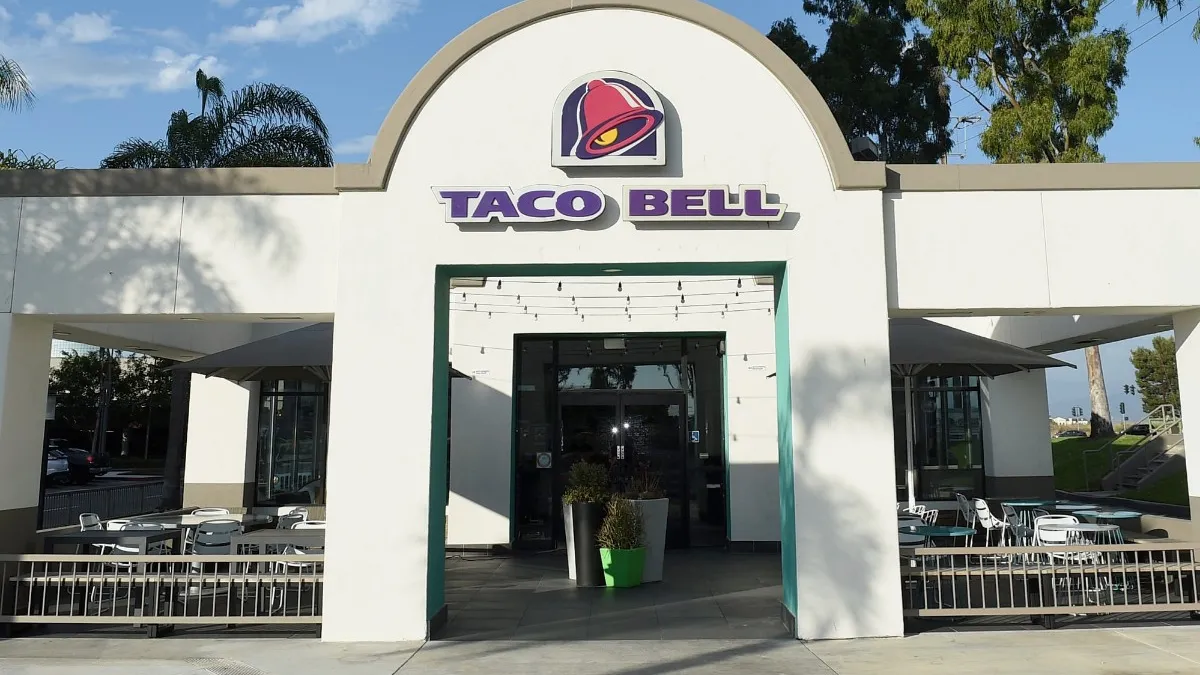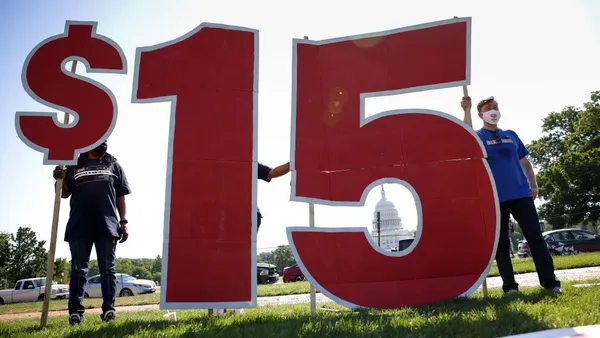Dive Brief:
- The U.S. Department of Justice (DOJ) has reached a $225,000 settlement with a Taco Bell franchise owner that allegedly discriminated against lawful permanent residents when verifying their work authorization. The settlement includes a $175,000 payment to the DOJ and a $50,000 reserve for back pay to eligible individuals, along with posting, training, monitoring and reporting requirements.
- The restaurant allegedly required lawful permanent residents to provide specific work authorization documents and did not impose a comparable requirement on U.S. citizens. As a result, said the DOJ, some lawful permanent residents missed out on work opportunities "even though they had presented sufficient documentation to prove their authorization to work."
- The DOJ's news release noted that "[f]ederal law allows all work-authorized individuals, regardless of citizenship status, to choose which valid, legally acceptable documents to present to demonstrate their ability to work in the United States." Employers are not allowed to request more or different documents, based on employees' citizenship status or national origin, than those necessary to prove work authorization.
Dive Insight:
The employment authorization process can be challenging for employers, as it involves many specific requirements and also a strict timeline once an employee starts work. Experts recommend promptness and consistency in the I-9 process, including the document review portion. It's important to remember that employees, not employers, choose which documents to submit, and employers cannot impose different or more stringent requirements on the basis of citizenship status or national origin.
What happens if an employee submits a document that doesn't appear to be genuine? According to an I-9 FAQ page maintained by U.S. Citizenship and Immigration Services (USCIS), "employers are not expected to be document experts" and may reject a document and ask for another if the document does not reasonably appear to be genuine or to relate to the person offering it. But documents that "reasonably appear on their face to be genuine" must be accepted, or the employer risks a discrimination claim, USCIS noted in the FAQ.
E-Verify, a web-based government system that allows businesses to confirm the employment eligibility of workers, is currently optional for most U.S. employers, but there are increasing calls to make it mandatory. Experts previously told HR Dive that there are pros and cons to employers using the system when they're not required to — including the fact that once an employer enrolls in E-Verify, its use is mandatory for all new hires from that point on.













